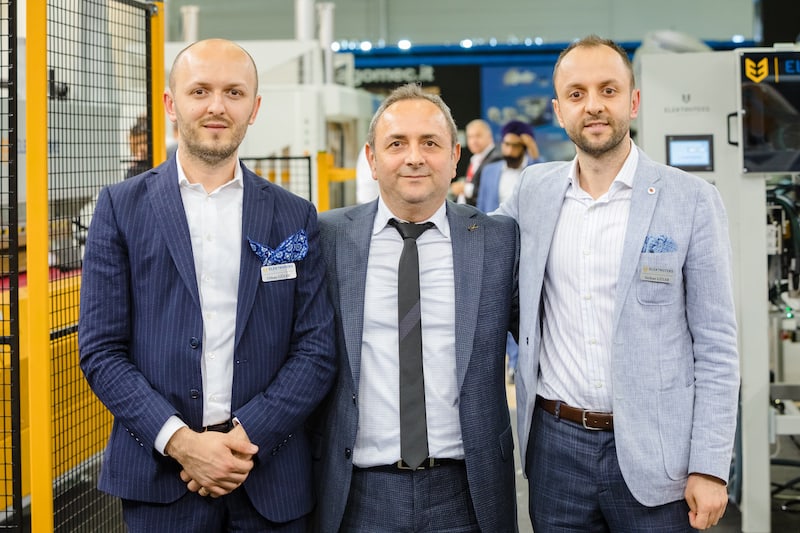
Machinery producer offers more smart machines and turnkey lines for mattress makers to reduce labor costs and improve manufacturing
Responding to growing demand for its bedding machinery at home, as well as in the 130 other countries it serves, Bursa, Turkey-based Elektroteks Co. is tripling its production facilities from 150,000 square feet in 2019 to 450,000 square feet by the end of this year.
The first step in this two-year expansion took place in 2020, when Elektroteks completed construction of a 150,000-square-foot facility in Bursa. Located 10 minutes from its first factory, the new plant doubled the company’s production capacity and increased the size of its workforce from 160 to 250.
But Elektroteks isn’t stopping there. The company has begun work on an additional 150,000-square-foot facility at its new site, where it already has invested $16 million in machining centers, a painting line, testing lab and other upgrades.
“Demand for our machines is growing rapidly,” says Chief Executive Officer Serkan Güler. “We are developing new machines very quickly and producing smarter and more integrated systems that lead manufacturers to choose us.”
AT A GLANCE – Elektroteks Co.
Headquarters
Bursa, Turkey, where it operates two 150,000-square-foot facilities. It is in the process of adding a third factory of the same size.
Specialty
Mattress machinery supplier. The company’s line includes glue lines, packing lines, tape-edge machines, quilting machines, border machines, roll slitters, automated smart mattress assembly lines, and a variety of conveyors and stackers.
History
Founded in 1991 by Osman Güler
Ownership
Osman Güler and his sons, Serkan and Orhan.
Learn more
From software to machinery
Founded by electronics engineer Osman Güler, Serkan Güler’s father, in 1991, Elektroteks initially specialized in software and control solutions for the textile, automotive, woodworking, food processing and packaging industries. In 2006, the company produced its first double-head, continuous quilting machine and then, as business grew, it began to shift more of its efforts to machinery production, particularly mattress machinery. In 2015, Elektroteks phased out its products for other industries to focus on foam and quilting machinery for bedding production.
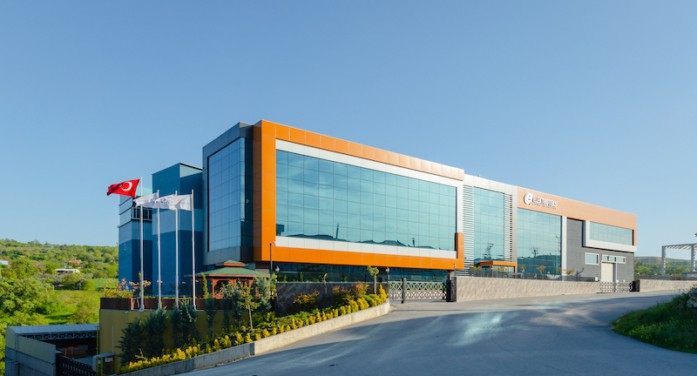
Today, Elektroteks produces almost every piece of equipment a mattress factory might need, except for spring unit machinery, according to Serkan Güler. The company sells everything from single machines to fully integrated systems for every stage of mattress production. Its product line includes glue lines (hot-melt and water-based gluing machines), packing lines (wrapping, roll-packing and foam-packing machines), tape-edge machines, quilting machines (multineedle quilters, single-needle quilters and hemmers), border machines (border quilters, handle attachers, sergers, border processing machines and zipper sewing machines), roll slitters, automated smart mattress assembly lines (including robots), and a variety of conveyors and stackers.
“We specialize in turnkey factory automation,” Güler says. “These smart systems include glue machines, tape-edgers, robotics, baggers, roll compression machinery, stackers and more, depending on the tailor-made layout that is created for each customer.”
“We can easily say that when we start with a customer, it is a very continuous process to improve every single operation in their factory,” he continues. “Usually, it is a sort of marriage. Ninety percent of our revenue comes from this type of long-term cooperation.”
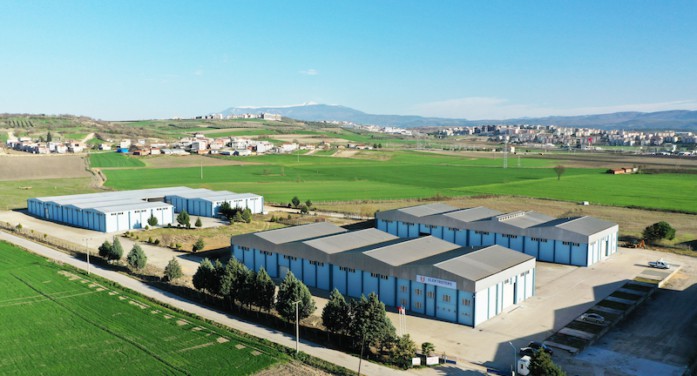
In the future, Elektroteks’ main goal will be to help manufacturers create “factories where everything is self-managed and fully automated,” Güler says. Such facilities would have “fewer or no people in most of the production operations, especially the nonvalue-added operations,” such as moving mattresses through the factory or packaging finished products.
Boxed bed innovations
In recent years, the rapid growth of the boxed bed sector has created demand for Elektroteks’ roll compression machines and other lines for boxed bed production. “This trend definitely is creating new needs for different type of machines, such as lamination, sock stuffers, auto box making and filling systems, zipper cover machines, and so on,” Güler says. “We are quick to create solutions for those needs, and customers are willing to work with us for their projects in these fields.”
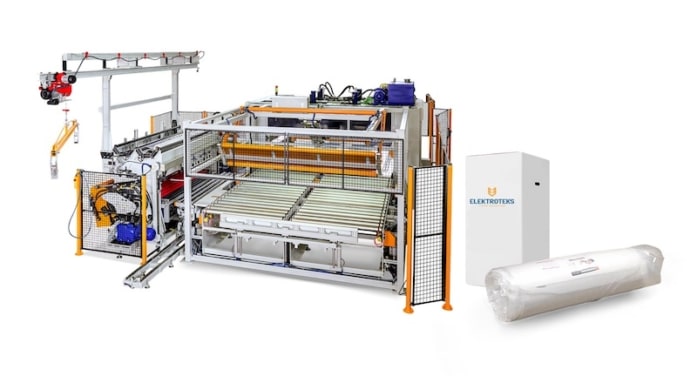
This year, Elektroteks introduced a lamination and roll-pack line for boxed bed producers that reduces labor and speeds up the assembly of mattress layers, Güler says. The line is suitable for a wide range of rolled mattress types, from thin toppers to heavy, triple-folded mattresses. The system combines the company’s WBX glue line with its ET-ROLL-400 series of automatic compression, folding and roll-packing machines.
Recent additions to the ET-ROLL-400 series include the ET-ROLL-440, with a smaller footprint and more streamlined operation than other machines in the group. The ET-ROLL-440 senses when and whether to fold a mattress depending on size and can make as many as three folds.
For conventional bed makers, Elektroteks offers a new type of hemming machine that it says “combines flanging and cutting into one automated operation.” Called the Hemmer, it has quickly become one of the company’s bestsellers in its range, Güler says.
“One of the most time-consuming parts of mattress production is flanging the quilted panel,” Güler says. “Thanks to its design, the Hemmer not only helps you to make the flanging process fully automatic, but also to avoid wasting any materials that are cut and put in the trash in conventional flanging.”
In the third quarter of 2021, the company plans to introduce a new multineedle quilting and hemming line “that will bring a very different concept to the quilting department,” Güler says.
When creating machines, Elektroteks draws on the talents of its 42 engineers. The group includes four quality engineers, eight software and electronic design engineers, 12 mechanical design engineers and 10 engineers that concentrate on production and project planning. The team also includes eight engineers focused on after-sales support.
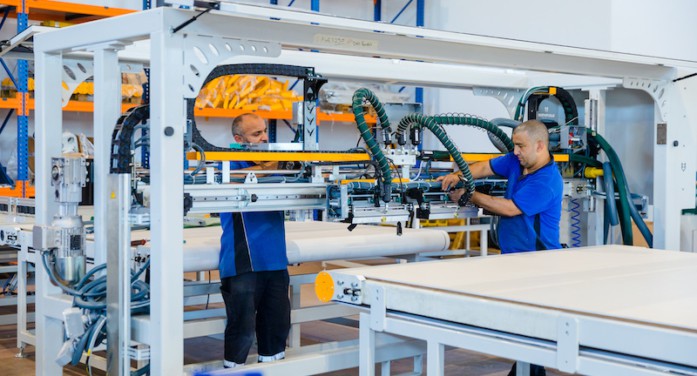
“We are very hybrid when it comes to service and R&D because it is hard to separate design from prototype production in the machinery industry,” Güler says. “But overall, I can say that 40% of the engineers are dedicated to R&D.”
When Elektroteks sets out to develop or improve a machine, one priority is reducing the level of human involvement in running it. “When we manage this, we reduce labor costs and provide more consistent product quality, traceability and autonomy,” Güler says. “Of course, safety also is not just a discussion, but a must.”
Quest for improvement
As a leading supplier of smart mattress production lines, Elektroteks also is on the lookout for new ways to make its machines work together more efficiently. “We offer hundreds of connected production tools to the bedding industry,” Güler says. “Our lines can follow the whole production and shipping cycle, starting from the customer’s order on through to the shipping of the mattress. We are very strong at assembly of mattresses and the mattress handling management within the factory, as well as the involvement of robots within a production line.”
“Of course, supplying all those machines by one factory provides the best efficiency in terms of compatibility and the overall success of the project,” he adds. “But we also have many efficient and unique solutions for roll packing, quilting and border production, as well.”
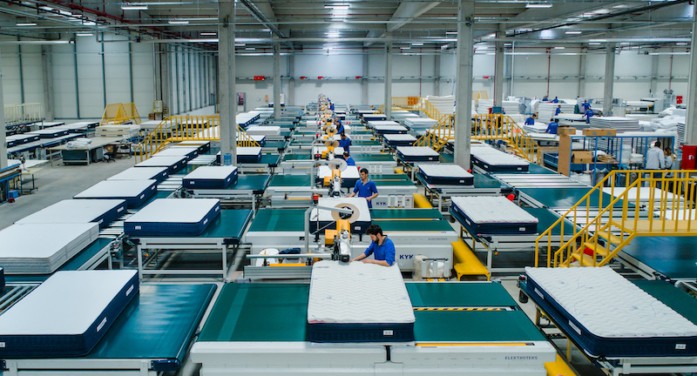
While energy and compressed air consumption also are important factors in new product development, “I cannot say they are the most important thing when designing a machine,” Güler says. “But when we finish the design, we strive to minimize both electricity and compressed air consumption while not sacrificing performance and durability.”
This approach typically involves reducing the amount of energy waste rather than reducing the performance of an operation, Güler adds. “In other words, we make the machine only consume more energy when there is a need. But we use the best-in-class components in terms of energy efficiency, as well as never drive our motors without an energy-saving frequency inverter to maximize the output with the minimum energy.”
To support its customers, Elektroteks has more than 50 employees “traveling all over the world for installation and service,” Güler says. “But 95% of the service and support are performed remotely through the Elektroteks Connected Service platform.”
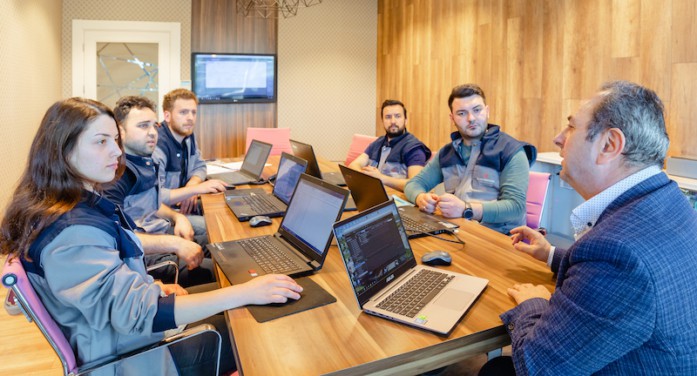
The company’s team of eight dedicated after-service engineers focuses exclusively on remote customer support and top management also is involved in service. “During the pandemic, we grew our team of online support engineers to improve our resources for guiding capable customers to install their equipment,” Güler says. “However, since most of our installations are big lines or equipment, we never stopped our customer service and installation visits, but the percentage of remote installation increased a great deal for stand-alone machines.”
In the United States, Elektroteks operates a parts and service center that it opened in 2018. The facility in Absecon, New Jersey, enables U.S. customers to get quick after-sale support. The site has a team of five that continues to grow, Güler says.
Quality comes first
To ensure the performance of new machines, Elektroteks has a detailed quality management system in its plants that extends from the acceptance of raw materials on through to the installation of finished machines at its customers’ facilities. Quality control takes place at each stage of production, with parts examined and measured individually before assembly. Before any machine is shipped, each key function is tested for proper operation.
Drawing on the deep experience in software and controls it developed before launching its own machinery line, Elektroteks has a “great ability to solve problems and a unique, multidisciplinary approach to our designs,” Güler says. At the same time, he says, “probably the most important engine that has spurred our growth is that we are very service-oriented and approach every problem as a ‘state of emergency’ in our company.”
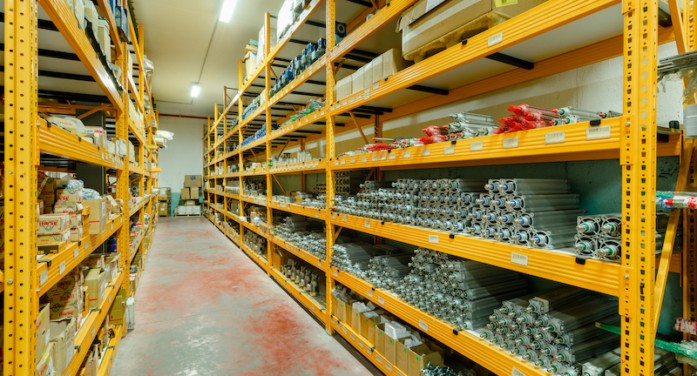
Elektroteks invests heavily in its service capabilities and does not view its service or parts functions as profit centers. “Also, being a family company makes our decisions quicker since growing our name and reputation always comes first, before money,” Güler says.
Even though Elektroteks has been in business for 30 years, it is a “young company,” says Güler, who was named CEO in 2020. Just 32 years old, he is the fourth-eldest engineer in the company, with two of the older engineers being his brother, Orhan Güler, who serves as chief technology officer, and his father, who continues to serve as president.
“We have a very dynamic culture and we all are very proactive,” says Güler, who grew up working around the company before receiving his undergraduate degree in mechanical engineering at Bogazici University in Istanbul. He also attended the University of Wisconsin-Madison.
When he started with the company in 2006, it had just 60 employees. Out of those 60, 40 still work at Elektroteks, Güler says, and “at least 25 people have over 20 years with us. While we believe in young blood, we expect to work with them for many years.”
Looking ahead, Güler is excited about the opportunities that the sleep industry holds. “I cannot say it is easy, but there are a lot of ways to differentiate yourself in our industry,” he says. “We have a lot of new projects in the works for at least the next 10 years, and we are investing in the people we need to make our dreams come true as we come up with new equipment for the market.”




